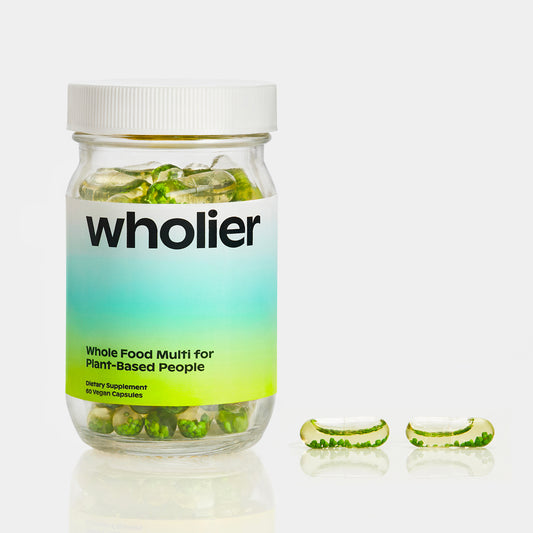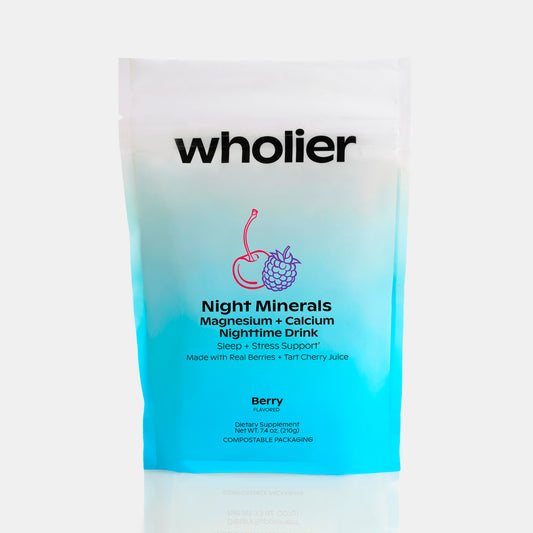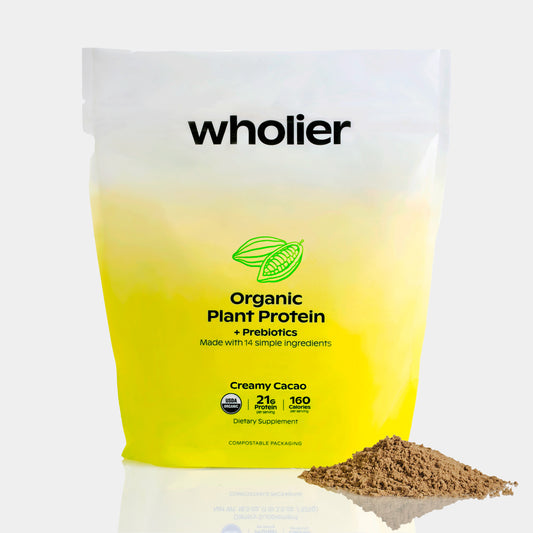
What is the Difference Between Prebiotics and Probiotics?
The human gut microbiome is a complex ecosystem consisting of trillions of microorganisms, including bacteria, viruses and fungi. These tiny creatures play significant roles in several bodily functions such as digestion, immune function and metabolism (1).
What are prebiotics?
Prebiotics are non-digestible dietary fibers that promote the growth and activity of beneficial bacteria in the gut flora by acting as food for them (2). They resist digestion in the upper gastrointestinal tract but ferment in the colon where they serve as substrates for bacterial fermentation processes.
Common sources include chicory root, Jerusalem artichoke, dandelion greens, garlics, leeks, soybeans, flaxseeds, psyllium husk and green banana flour (3).
Research suggests that people who consume high amounts of fiber-rich foods have greater microbial diversity within their guts.
What are probiotics?
Probiotics refer to live microorganisms typically consisting of strains of bacteria or yeast that offer health benefits when consumed adequately (4). Probiotics help maintain a healthy balance within your gut by crowding out harmful pathogens while promoting growth among good bacteria.
There are many different strains available on the market today with unique benefits depending on individual needs:
- Lactobacillus acidophilus: Helps treat irritable bowel syndrome (IBS) symptoms
- Bifidobacterium lactis: May reduce inflammation associated with certain skin conditions like eczema
- Streptococcus thermophiles: Can alleviate diarrhea caused by antibiotic use
- Saccharomyces boulardii : Has been shown to help prevent and treat diarrhea
These are just a few examples of the many strains available, each with its unique benefits. When it comes to probiotics, it's crucial to choose reputable brands that use strains backed by scientific studies with an appropriate CFU (colony-forming unit).
Why are probiotics and prebiotics important for your gut health?
Both prebiotics and probiotics play critical roles in maintaining a healthy gut microbiome that has far-reaching implications on overall health. A balanced gut microbiome may help prevent chronic diseases such as obesity, diabetes, heart disease, autoimmune disorders and even certain cancers.
Research suggests that people who consume high amounts of fiber-rich foods have greater microbial diversity within their guts than those who consume low-fiber diets. This diversity correlates with lower incidence rates of various illnesses.
A study conducted by the American Heart Association found that a probiotic supplement containing Lactobacillus reuteri reduced LDL cholesterol levels in people with hypercholesterolemia (5).
Emerging research suggests that gut health may play a role in mental health and mood disorders. A study published in Nutrients found that individuals who took prebiotic supplements had lower cortisol levels (a marker of stress) and improved cognitive function compared to those on placebo (6).
In another study, probiotics were found to have potential benefits for individuals with anxiety and depression. A meta-analysis of 10 randomized controlled trials found that probiotic supplementation was associated with a significant reduction in symptoms of depression. The researchers suggest that the gut-brain axis may be responsible for this effect, as probiotics have been shown to modulate the production of neurotransmitters such as serotonin and dopamine (7).
Recent research has shown a link between gut health and the immune system. The microbiome interacts with the immune system through various mechanisms, including producing short-chain fatty acids which can regulate inflammation in the body.
The benefits of maintaining a healthy gut microbiome extend beyond physical health. Studies have also suggested links between gut health and mental well-being. For example, researchers have observed differences in the gut bacteria of people with depression compared to those without it.
Tips for boosting your prebiotic and probiotic intake
Incorporating fiber-rich foods like fruits, vegetables, legumes along with fermented foods can help boost your intake of both types of beneficial microorganisms naturally while providing numerous benefits backed by scientific studies.
Here are some easy ways you can incorporate prebiotics and probiotics into your diet (8):
1. Add more fiber-rich plant-based foods: Include plenty of fresh fruits, vegetables and whole grains such as oats or barley.
2. Eat more fermented foods: These include yogurt, kefir, sauerkraut, kimchi and pickles.
3. Take a high-quality probiotic supplement: Choose reputable brands with scientifically-backed strains for maximum benefits.
4. Try prebiotic supplements: If you have trouble getting enough fiber from your diet, consider adding in a prebiotic supplement like green banana flour or psyllium husk.
5. Avoid excessive use of antibiotics: While antibiotics are sometimes necessary to treat infections, overuse can harm the gut microbiome by killing off both good and bad bacteria.
6. Reduce stress levels: Chronic stress has been shown to negatively impact the gut microbiome, so try incorporating relaxation techniques such as meditation or yoga into your daily routine.
Maintaining optimal gut health is essential for overall well-being and involves ensuring adequate intake of both prebiotics and probiotics through diet and supplementation when needed. By making simple changes to our diets and lifestyles that promote microbial diversity within our guts, we can enjoy numerous health benefits backed by scientific research while preventing chronic diseases down the line.
Sources:
(1) Sonnenburg, J. L., & Fischbach, M.A. (2011). Community Health Care: Therapeutic Opportunities in the Human Microbiome.
(2) Gibson GR, Hutkins R, Sanders ME et al.. Expert consensus document: The International Scientific Association for Probiotics and Prebiotics (ISAPP) consensus statement on the definition and scope of prebiotics.
(3) Holscher HD et al.. Agave Inulin Supplementation Affects the Fecal Microbiota of Healthy Adults Participating in a Randomized, Double-Blind Study.
(4) “Office of Dietary Supplements - Probiotics.” NIH Office of Dietary Supplements. U.S. Department of Health and Human Services. Accessed March 16, 2023. https://ods.od.nih.gov/factsheets/Probiotics-HealthProfessional/.
(5) American Heart Association News Release 2020
(6) Petra C. Vinke, Inge G. L. van de Looij-Jansen, Ad A. van der Veen, and Cees de Graaf. "Effects of a Prebiotic Supplement on Cognitive Functioning and Cortisol Response in Healthy Adults: A Randomized, Double-Blind, Placebo-Controlled Trial." Nutrients, vol. 11, no. 11, 2019, pp. 2806.
(7) Katie L. Klingbeil, Brittany A. Xavier, and Catherine J. Riddle. "A Review of Probiotic Supplementation in Individuals with Depression and/or Anxiety Disorders: Insights from Experimental and Clinical Studies." Frontiers in Psychiatry, vol. 10, 2019, pp. 1-14.
(8) Hogervorst, E., Jenkins, A. L., Sievenpiper, J. L., Kendall, C. W., Jenkins, D. J., Solah, V., Henry, C. J., Dreher, M. L., van Ommen, B., van Dijk, S. J., Plat, J., & Feskens, E. (2018). Pro- and syn-biotics to manipulate postprandial metabolism. Best Practice & Research Clinical Gastroenterology, 32-33, 161-167.






